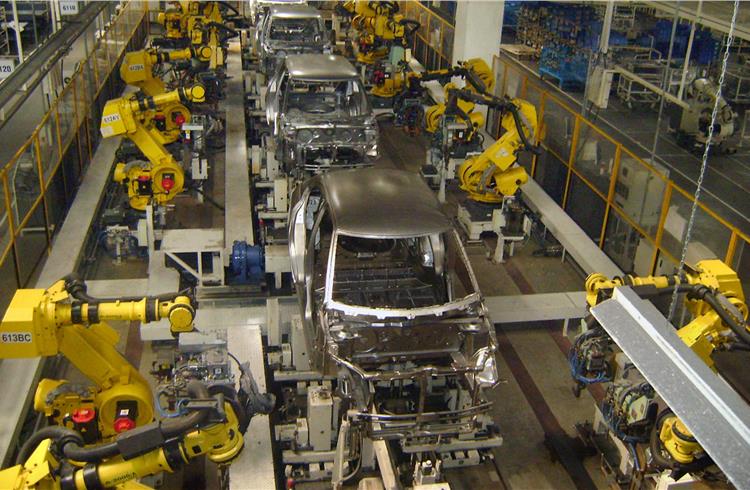Maruti Suzuki looks to squeeze out more production from existing plants
Burgeoning domestic demand and the new Gujarat plant a year away could see the carmaker face capacity constraints.
Maruti Suzuki plans to employ interim measures to squeeze out more production from its existing manufacturing facilities in order to meet growing domestic demand and could end FY 2017 with a capacity of 1.55 million units.
The carmaker, which had produced 1,308,128 units in 2014-15 (+13.40% YoY) and sold 1,170,702 units (+11.11% YoY), is likely to finish FY 2016 with a production capacity of 1.45 million units.
While the Gurgaon plant has an annual production capacity of 700,000 cars in two shifts in three assembly facilities, the Manesar plant can produce 800,000 units in two shifts from three assembly facilities.
Maruti Suzuki India currently has a 46.91% market share in passenger vehicles (cars, utility vehicles and vans) and 52.70% in passenger cars.
Speaking to journalists on the sidelines of the ‘Make in India Week’ in Mumbai today, RC Bhargava, chairman, Maruti Suzuki India, said that the carmaker will create more capacity at its existing Manesar and Gurgaon plants in order to cater to burgeoning demand. With the new Gujarat plant set to open only around January 2017, Maruti is likely to face some capacity constraints, hence the move has become necessary, Bhargava added.
Commenting on the growth prospects for the country's largest carmaker, Bhargava hinted that repeating double-digit growth in FY 2017 would be difficult. "We are finalising our estimates. If not double-digit growth, we could see 8-9% growth in FY 2017," he said.
Commenting on the diesel engine debate, Bhargava said that with BS VI norms set to fall in place by 2020, the emissions from diesel engines will be at par with other engines, adding that the fuel is being targeted unnecessarily.
"With Euro 6, diesel is as good as any other fuel type. Euro 5 actually lagged behind because the State-run oil companies did not invest in upgrading to that kind of fuel earlier, which led to the delay. As happens in all such cases, somebody does something and someone else bears the consequences," he said.
Commenting on the Haryana chief minister's recent announcement about Suzuki Motor Corporation increasing investments in the state, Bhargava said that the details of the investment are yet to be known. However, he hinted at the need to enhance engine capacity – "I think we are still working out what the implications of the diesel policy would be for future demand and whether we would need more petrol engines in the future, given the present scenario."
RELATED ARTICLES
Bosch hydrogen engine tech-powered truck to be on Indian roads this year
The global supplier of technology and services is betting big on both electromobility and hydrogen. While announcing the...
IIT Bombay inaugurates Arun Firodia Research Floor
IIT Bombay, one of India’s top technical and research institutions, honours Kinetic Group chairman Dr Arun Firodia, one ...
Maruti Suzuki expands capacity at Manesar plant by additional 100,000 units
New assembly line at Plant A expands total manufacturing capacity at the Manesar plants to 900,000 units per annum. Alon...





 By Shourya Harwani
By Shourya Harwani
 17 Feb 2016
17 Feb 2016
 3174 Views
3174 Views









